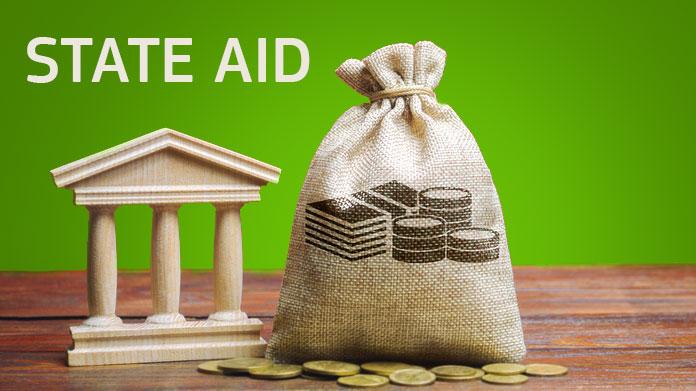
The European Commission has approved a €500 million Irish investment support scheme aimed at incentivising companies to accelerate or expand capital investment in Ireland, including in relation to green and new digitalisation technologies, for greater competitiveness and productivity. The scheme was approved under the State aid Temporary Framework.
Executive Vice-President Margrethe Vestager, in charge of competition policy, said:
“This €500 million scheme will help Ireland set the path for a faster and more sustainable recovery and represents an important step to bridge the investment gap left behind by the coronavirus crisis. We continue working in close cooperation with Member States to ensure that national support measures to kick-start and crowd-in private investment can be put in place as quickly and effectively as possible, in line with EU rules.”
The Irish support measure
Ireland notified to the Commission under the Temporary Framework a €500 million scheme aimed at providing investment support towards a sustainable recovery.
Under the scheme, the aid will take the form of direct grants and will be used to finance investments in tangible and intangible assets as a stimulus to overcome an investment gap accumulated in the economy as a result of the coronavirus pandemic.
The measure will be open to companies active in sectors such as manufacturing, information and communication, scientific and technical activities.
The measure is expected to benefit up to 500 companies.
The Commission found that the Irish scheme is in line with the conditions set out in the Temporary Framework. In particular,
- the aid amount per beneficiary will not exceed 1% of the total budget;
- the aid will benefit investments in tangible and intangible assets but not financial investments;
- the aid will not exceed the maximum aid intensities set out in the Temporary Framework; and
- the public support will be granted no later than 31 December 2022.
The Commission concluded that the Irish measure is necessary, appropriate and proportionate to foster investment for certain economic activities of importance for a sustainable recovery, in line with Article 107(3)(c) TFEU.
On this basis, the Commission approved the aid measure under EU State aid rules.
Background
On 19 March 2020, the Commission adopted the State aid COVID Temporary Framework to enable Member States to use the full flexibility foreseen under State aid rules to support the economy in the context of the coronavirus outbreak. The COVID Temporary Framework has been amended on 3 April, 8 May, 29 June, 13 October 2020, 28 January and 18 November 2021.
As announced in May 2022, the COVID Temporary Framework has not been extended beyond the set expiry date of 30 June 2022, with some exceptions.
In particular, (i) investment support towards a sustainable recovery can be granted to support private investment as a stimulus to overcome an investment gap accumulated in the economy due to the crisis; and (ii) solvency support can be used to leverage private funds and make them available for investments in small and medium-sized enterprises (SMEs). They may still be put in place until 31 December 2022 and 31 December 2023 respectively.
In addition, the COVID Temporary Framework already provides for a flexible transition, under clear safeguards, in particular for the conversion and restructuring options of debt instruments, such as loans and guarantees, into other forms of aid, such as direct grants, until 30 June 2023.
The COVID Temporary Framework complements the ample possibilities for Member States to design measures in line with existing EU State aid rules. For example, EU State aid rules enable Member States to help companies cope with liquidity shortages and needing urgent rescue aid. Furthermore, Article 107(2)(b) TFEU enables Member States to compensate companies for the damage directly caused by an exceptional occurrence, such as the coronavirus outbreak.
The Commission will continue to closely monitor future developments and will act fast again if the need arises.
Furthermore, on 23 March 2022, the Commission adopted the State aid Temporary Crisis Framework to enable Member States to use the flexibility foreseen under State aid rules to support the economy in the context of Russia's invasion of Ukraine. The Temporary Crisis Framework has been amended on 20 July 2022, to complement the Winter Preparedness Package and in line with the REPowerEU Plan objectives. The Temporary Crisis Framework will be in place until 31 December 2022 for the liquidity support measures and measures covering increased energy costs. Aid supporting the roll-out of renewable energy and the decarbonisation of the industry may be granted until end June 2023. With a view to ensuring legal certainty, the Commission will assess at a later stage the need for an extension.
The non-confidential version of the decision will be made available under the case number SA.103565 in the State aid register on the Commission's competition website once any confidentiality issues have been resolved. New publications of State aid decisions on the internet and in the Official Journal are listed in the Competition Weekly e-News.
More information on the Temporary Framework and other action the Commission has taken to address the economic impact of the coronavirus pandemic can be found here.
Details
- Publication date
- 25 July 2022
- Author
- Representation in Ireland
